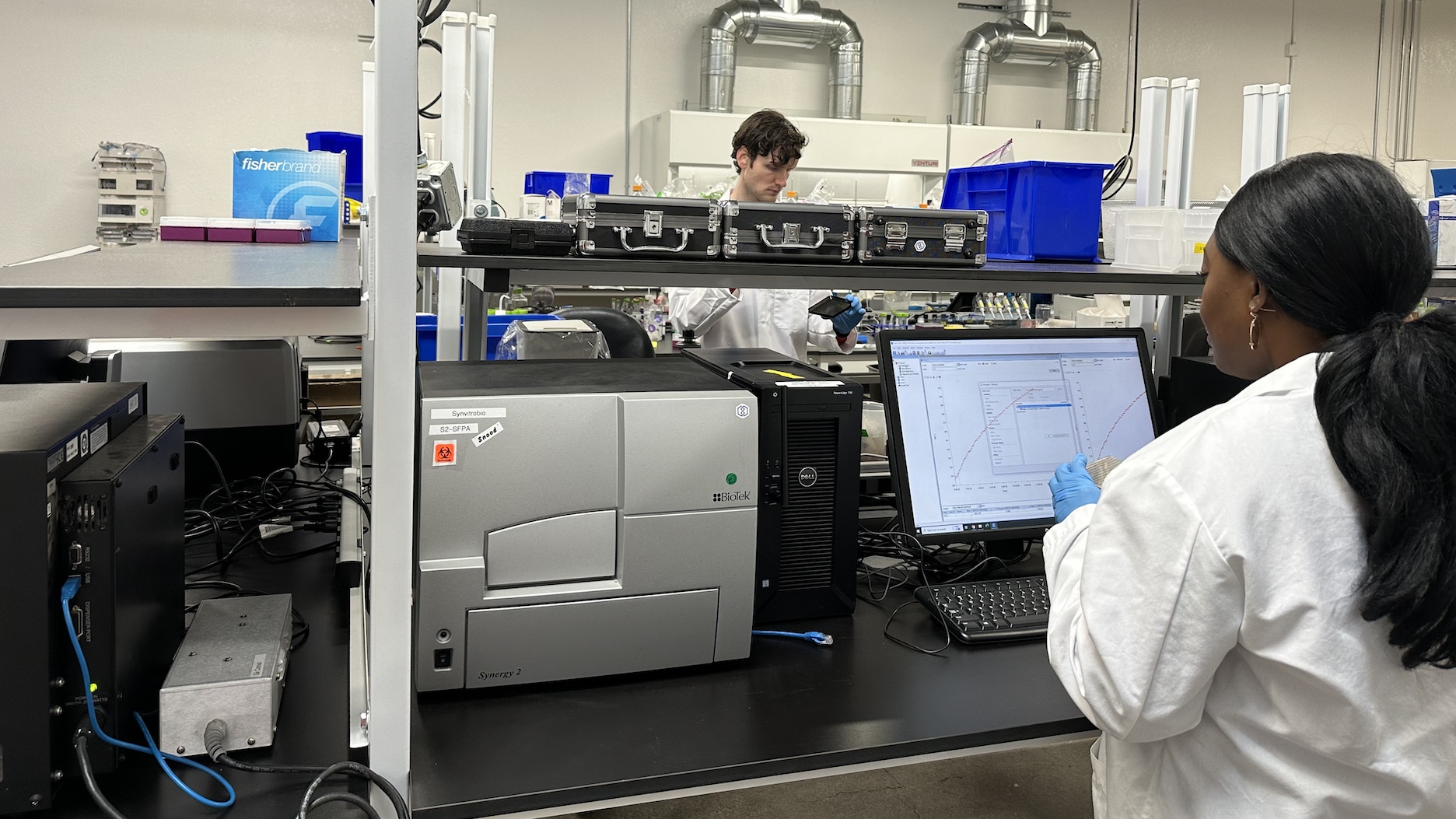Scientific breakthroughs have accelerated the pace at which new pharmaceuticals are being developed. Tierra Biosciences thinks that pace can go faster.
The San Leandro-based company has developed a platform for AI-guided, custom protein synthesis to help pharmaceutical, industrial and agricultural organizations develop new proteins in weeks rather than months.
Simply put, Tierra is enabling customers to order proteins online that can make anything from antibodies to growth factor for a food product. The platform creates cell-free reagents, or a digital sequence to a protein. Tierra makes the DNA, or the codes for the protein. Its reagents are combined with the customer’s protein sequences, and put into a robotic platform to create the proteins.
“When that protein goes through the process, we start generating lots of data,” Michael Nemzek, Tierra’s CEO, told TechCrunch. “We look at things like stability and solubility, and all these different parameters of the protein, and then we take that in front of a closed feedback loop.”
Organizations traditionally develop new proteins using living cells, which Nemzek says is slow, inefficient and relies on poor data. Tierra instead uses cell-free technology, which is able to cut down the timeline from months to weeks and tell a customer if their protein will work or not. For example, if a customer is making an enzyme for a laundry detergent, Tierra plugs it into its AI-powered large language model. That spits out data on if the existing sequence will work or if it needs to be changed. It gives a complete picture of the protein before the customer needs to iterate, saving time and money from a live-cell development process, Nemzek said.
“People making proteins today have to order DNA and then they have to transect living cells. And there’s a lot to do to keep the cells alive,” Nemzek said. “We provide an extremely high throughput way of generating protein. If somebody needs 100 proteins to validate their AI model, we can do that in a few weeks. People can’t do that on their own without spending a lot of money.”
Tierra’s AI data model becomes larger with each protein it makes, and the company has made over 5,000 proteins to date. However, there are an infinite number of proteins that could be made in the world, Nemzek said.
We profiled Tierra Biosciences in 2018 after it rebranded from Synvitrobio and raised $2.6 million in new financing. Since then, the company went on to grab $7.2 million in grants from respectable government agencies, including the Advanced Research Projects Agency–Energy, the National Institutes of Health and the Defense Advanced Research Projects Agency.

Tierra Biosciences’ protein manufacturing laboratory. (Image credit: Tierra Biosciences)
It also brought on Nemzek as CEO in 2022. He replaced co-founder Zachary Sun who now serves as chief scientific officer. Prior to joining the company, Nemzek was chief commercial officer at Synthego Corp. where he led the commercial expansion and growth of its CRISPR genome engineering business.
Now with $11.4 million of new Series A funding, Nemzek is leading Tierra toward commercialization. The investment was led by Material Impact, a fund cofounded by Adam Sharkawy (a dealmaker at The Medicine’s company before Novartis acquired it in 2020) and Carmichael Roberts (known for his investment work at climate fund Breakthrough Energy Ventures, backed by a who’s who of billionaires). The round had participation from new and existing investors, including Prosus Ventures, In-Q-Tel (IQT), Hillspire, Freeflow Ventures, Creative Ventures and Social Capital.
Tierra already has relationships with some major pharmaceutical, industrial and agricultural organizations. It will use this new funding to expand to a broader set of customers and partners and build out more of its AI data generation capabilities. It will also hire a commercial team to start showing more aggressive sales growth since launching the platform about a year ago.
Some customers have also expressed interest in new industry-specific cell-free systems that don’t exist yet, Nemzek said. Tierra is working on that as well as increasing the quantities of proteins it can produce. Currently, it can produce milligrams for customers to experiment with, and in the next month or two will scale to a gram, which is more suitable for pilot programs.
“Do we believe cell-free technologies will solve every protein problem? No, but it will solve about 80% of the curve,” Nemzek said. “If you’re trying to design a new protein to do whatever you’re interested in, you can go beyond nature, and use Tierra’s predictive powers to develop the protein functions.”
techcrunch.com




